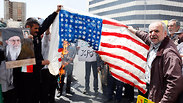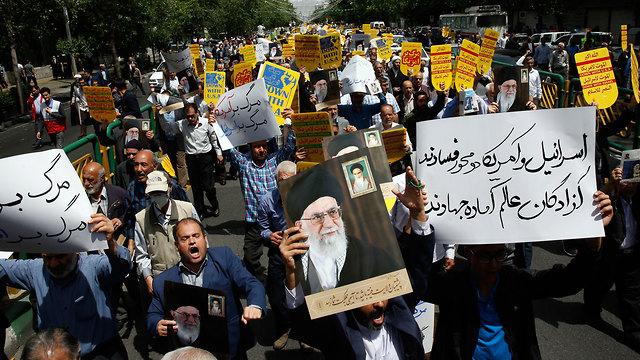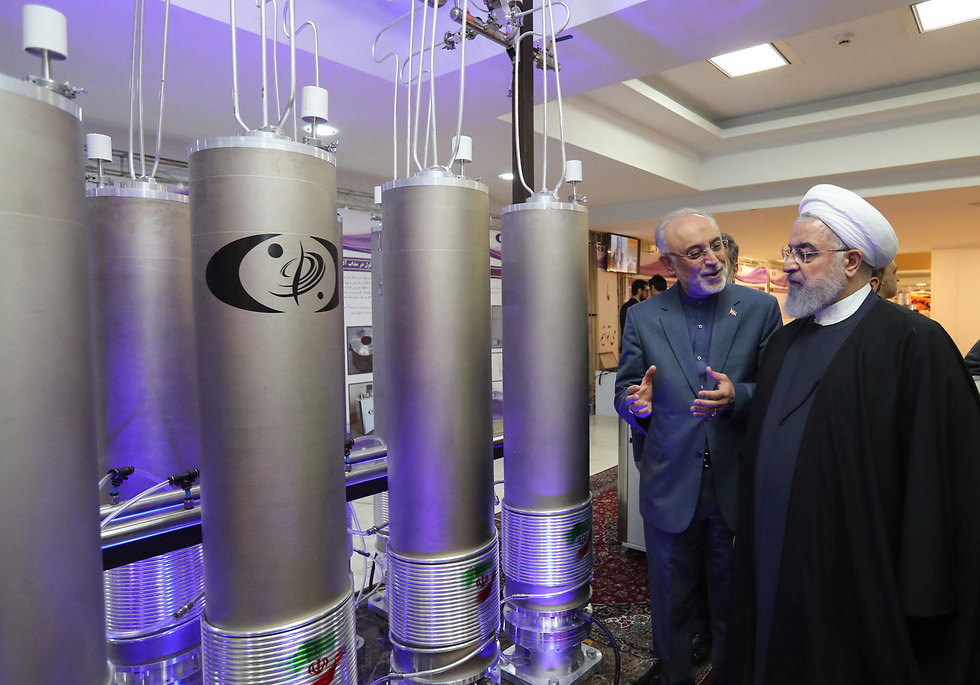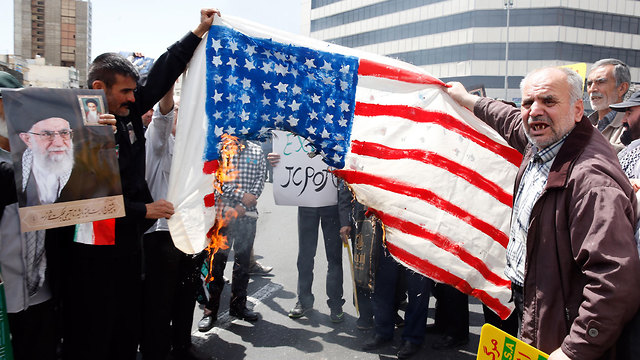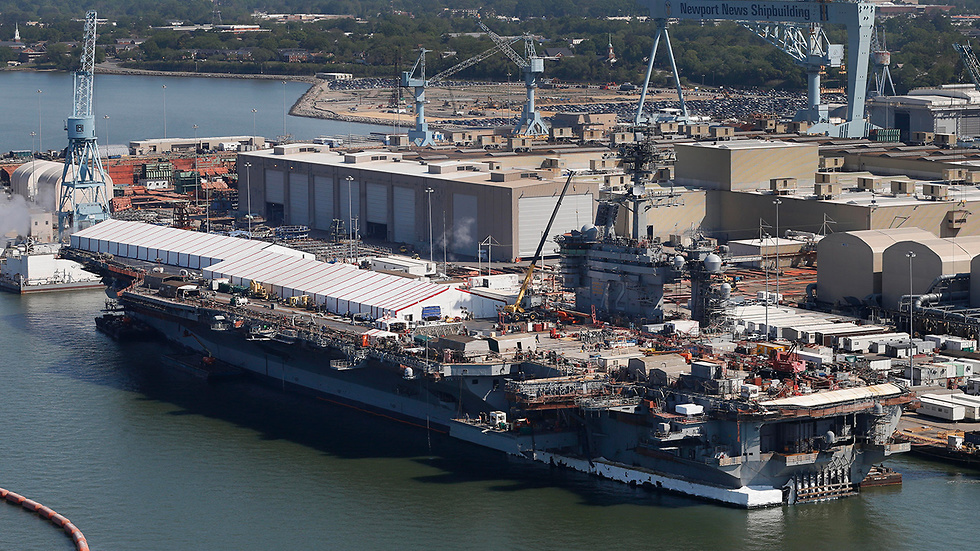
Iran's nuclear standoff has left it in a bind
Analysis: Tehran's 60-day ultimatum to Europe, China and Russia to renegotiate the 2015 agreement brokered by Obama and rejected by Trump could leave the Islamic Republic with no option but to go cap in hand to the Americans, unless the ayatollahs are playing a more dangerous game
In the Western world, however, no one understands exactly what’s going on inside the heads of the ayatollahs and to where this will escalate.
Western intelligence seems to have more of an idea about Iran's intentions after the Revolutionary Guards were caught with anti-ship missiles on vessels along the Persian Gulf, in order to probably create a military crisis in the Gulf, particularly in the Strait of Hormuz (linking the Persian Gulf with the Arabian Sea).
American deployment in the area is mostly seen as a deterrent, signaling to Tehran that the US has no plans to invade the Islamic Republic but is adamant that any intentions to affect the oil trade routes and counter American sanctions must be scrapped.
There’s no doubt that US intelligence has led Washington to hold behind the scenes talks with allies who could be affected by a potential spike in oil prices. The announcement by the French government in support of the US actions in the Gulf only goes to prove that. Furthermore, Russian Foreign Minister Sergey Lavrov also said last week that Iranian threats to disrupt the oil supplies are unacceptable.
The Americans most likely have also consulted with Jerusalem on the issue, seeing as a strong US response could trigger a regional crisis that would impact on Israel.
As the current crisis unfolds, Iran finds itself increasingly isolated. The Iranians feel they’d been betrayed by the Europeans, who cast the Islamic Republic aside after reading the economic map: Trade between the US and EU is worth over $1.1 trillion a year, while the trade with Iran is only worth some $30 billion a year.
A 12-point document by Secretary of State Mike Pompeo indicates that the administration views the Iranians not only as attempting to become a nuclear power, but also as sponsors of terror and instability in the Mideast.
US President Donald Trump's mindset regarding the international agreements he inherited from Barack Obama is “out with the old, in with the new." This is the real reason behind the re-imposition of US sanctions on Iran in recent weeks. And the American pressure seems to be paying off, seeing as Iran’s economy has shrunk so badly that inflation could reach 40 percent, while the local currency is in free fall.
Trump is consistent in his attempts to blow up any international deal signed by his predecessor, and that includes the Iran nuclear agreement.
The Iranians are feeling the effects of the sanctions. A 40% inflation rate and the collapse of the local currency already wreaking havoc.
Israel is so far staying quiet, as it should, save for a comment last week by Prime Minister Benjamin Netanyahu to again warn that Israel will not allow Iran to obtain nuclear weapons.
In light of a 60-day ultimatum given by Iran last week to Britain, France, Germany, China and Russia to renegotiate the nuclear deal after the U.S. withdrawal, the Mideast could see any number of changes. The Trump peace deal which will purportedly be unveiled in June may create new alliances and will certainly impact on U.S.-Iran relations.
The Iranians are in a bind. They cannot drop out of the Non-Proliferation Treaty because that would be considered an act of war. They cannot drop out of the 2015 nuclear deal because that is the only agreement that will ultimately ensure that they can produce nuclear weapons.
They will most likely make some noise and cause some drama for the duration of those 60 days, at the end of which they will surely pick up the phone to the Americans.
That is of course unless the ayatollahs have completely lost their minds.













